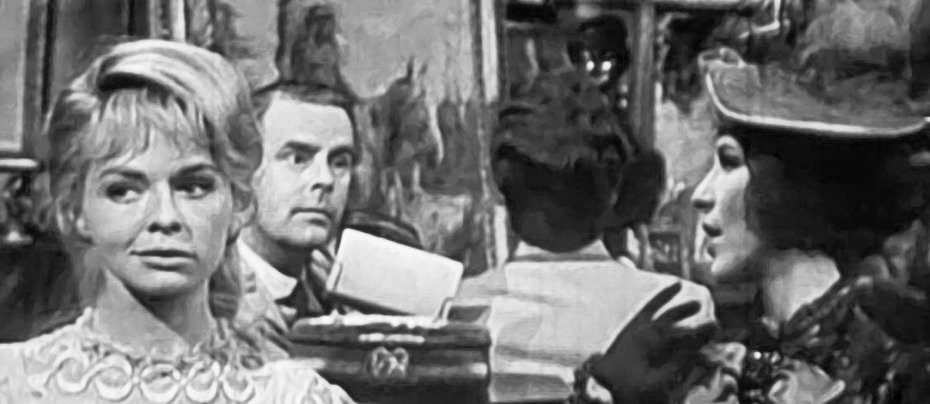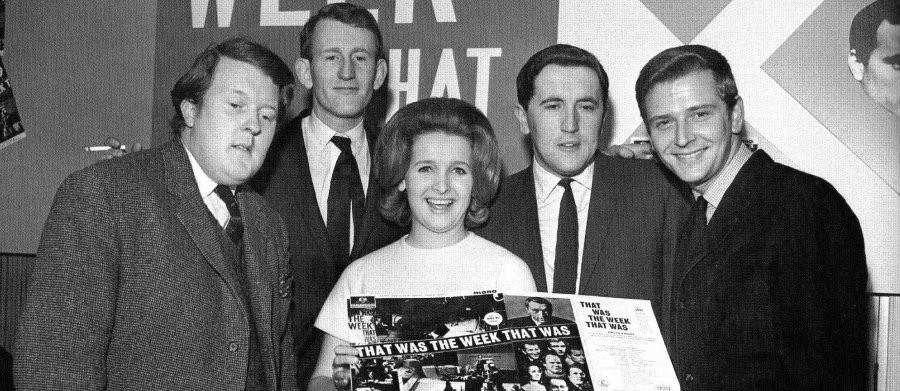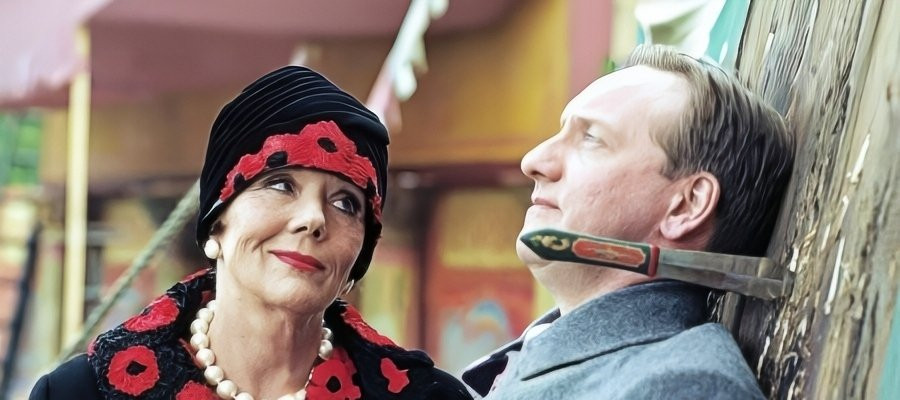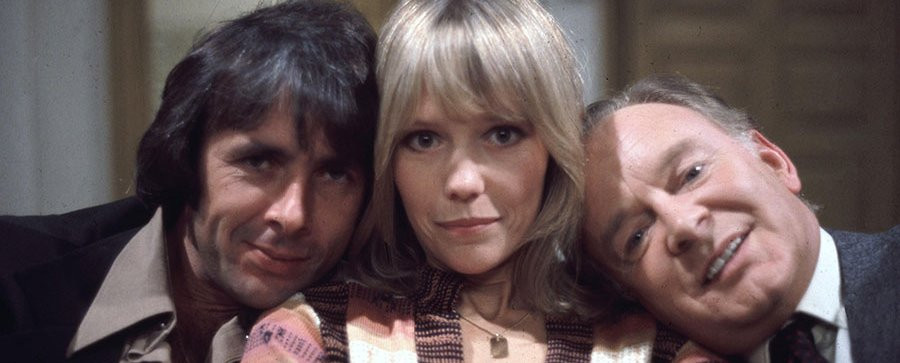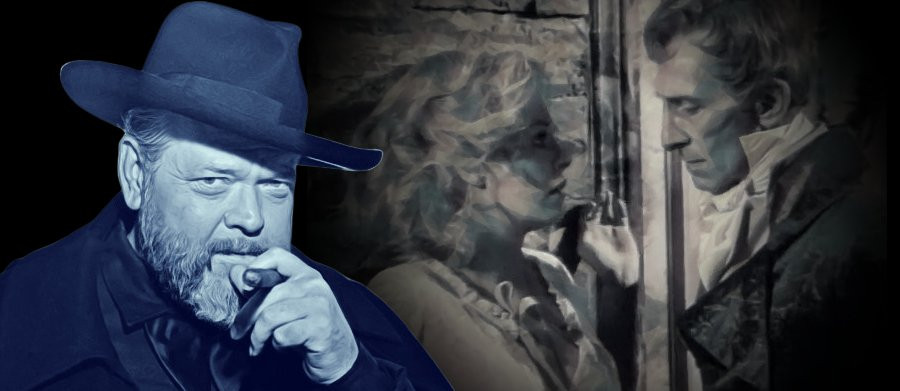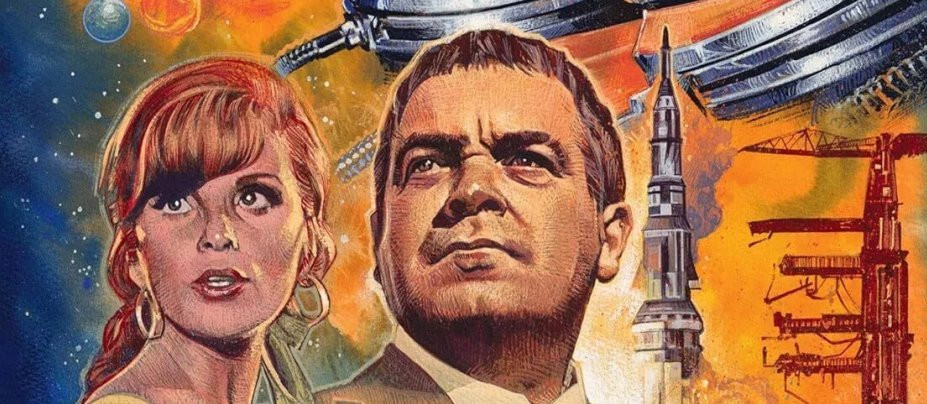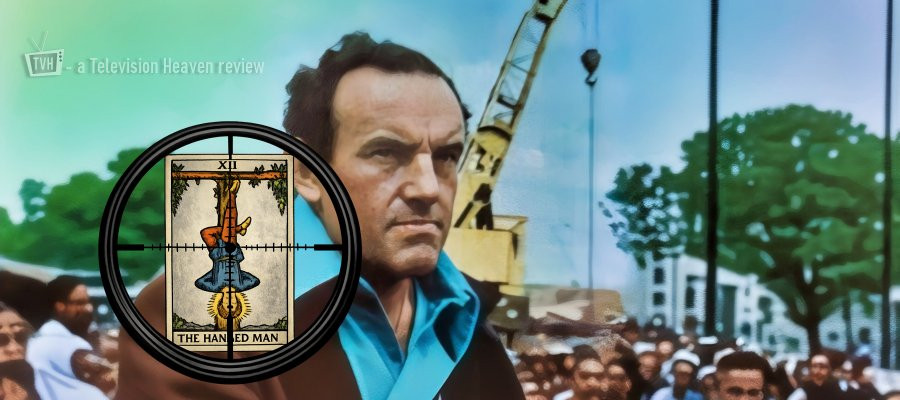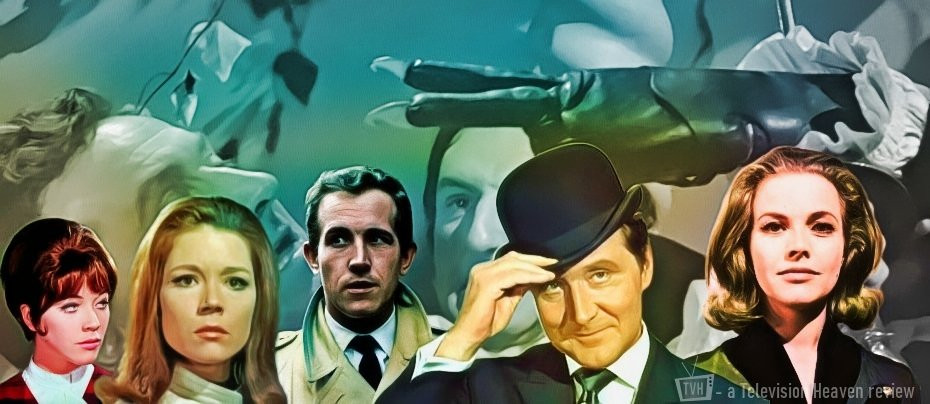
The Avengers - The Sixties Personified
“the colour episodes made it the definitive showcase for Swinging London”
Review by John Winterson Richards
Television is a circular medium. It is influenced by the culture in which it is produced and in turn it influences that culture. Most of this traffic is one way, in the former direction, but sometimes a show has such an impact that it changes the world in which it was made. To a great extent, the "Swinging London" of the Sixties, or at least the image of it we have today, is based on four of the six seasons of The Avengers.
It is the biggest direct influence on Austin Powers, but also the biggest indirect influence through a number of other "spy caper shows" of the Sixties and Seventies that tried, with varying degrees of success, to copy its format and style.
It did not start out that way. Indeed, it is difficult to imagine a show with a stranger evolution. Television drama runs on a "spectrum of seriousness," with very serious "docudrama," which is basically documentary with actors, at one end, and more light hearted "comedy drama" at the other. In the course of just over a season, The Avengers effectively migrated from the far side of that spectrum to the other extreme.
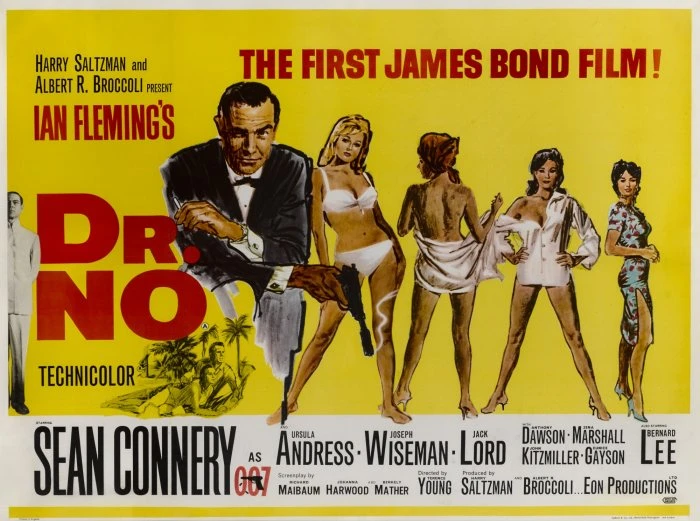
The Bond film Doctor No may have had a big influence on the transformation. The show had already started in that direction, but the huge financial success of the film in 1962 encouraged and accelerated it, and helped its acceptance. Post-War "social realism" was replaced by fantasy as the defining style of the Sixties. The spy went from being a lonely figure on the margins to a glamorous "superagent" possessed of extraordinary abilities and almost limitless resources. What Bond offered on the big screen, The Avengers offered on television. It was the beginning of a symbiotic and mutually exploitative relationship between the two franchises.
The show had been intended originally as a star vehicle for Ian Hendry. Blessed with acting abilities and looks that made him ideal for the "social realist" dramas that were the fashionable thing at the turn of the decade, Hendry - more than Connery or Caine or Shaw or Moore - was seen very much as the coming man in 1961.
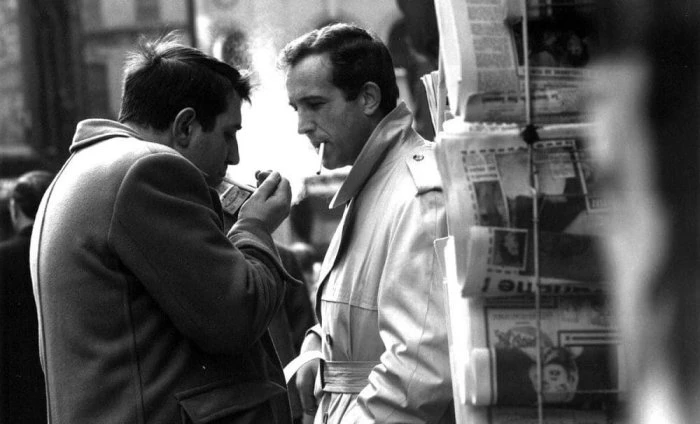
He had therefore been well cast as the eponymous Police Surgeon in a short-lived Associated British Corporation (ABC) series. This was, at least initially, a full on "docudrama," with story ideas from an actual General Practitioner based on real life situations. As the show began to move more into fiction, the GP asserted his contractual right to greater control over the script. Rather than waste time and money litigating or buying him out, Sydney Newman, the legendary Canadian television executive who was then head of drama at ABC - and was soon to go on to the BBC, where he greenlit Doctor Who - simply dropped the whole show.
However, Newman still wanted to retain the services of Ian Hendry. So he set up a new show for him, one that was curiously similar to Police Surgeon but sufficiently different for legal purposes. Thus Hendry and his Police Surgeon co-star Ingrid Hafner went straight from playing a GP and a nurse to playing, er, a GP and a nurse - but a completely different GP and nurse.
This was the beginning of The Avengers. While it retained the same realistic style as Police Surgeon, it was unashamedly fictional. Hendry's fiancé is murdered. As he seeks justice, he is met with official indifference, but is helped by a mysterious man calling himself John Steed (Patrick Macnee), apparently an agent for an unnamed Government Department, to avenge the murder - hence The Avengers. The pair subsequently team up for other cases.
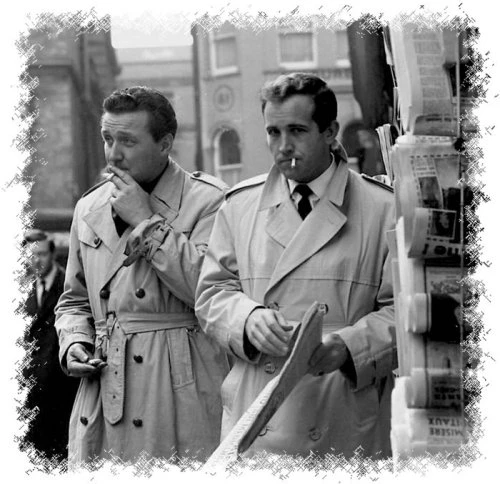
The new show was not a great success. Macnee later described it as a couple of men hanging around in trenchcoats. At the end of the first season, Hendry decided he was better off pursuing his career in the cinema and left - thus beginning something of a tradition for stars of The Avengers. Sadly, he did not have the perfect role lined up as two of his successors did and the great future predicted for him never quite happened before his tragically premature death.
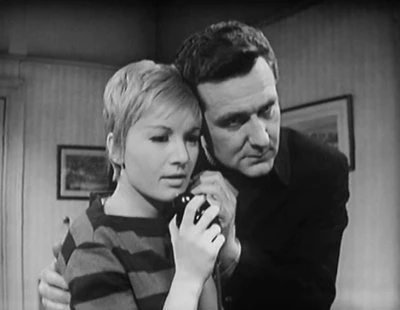
After this false start, a second soon followed. Macnee had established his character as the more interesting of the two leading roles, so it was decided to continue with the show with him as the star. However, instead of giving him a new partner, the strange decision was made to alternate between another male physician, to pick up the scripts written for Hendry that demanded one, and two female partners. One of these was Venus Smith (Julie Stevens), a nightclub singer, which was the pretext for a musical interlude in each of the episodes in which she appeared.
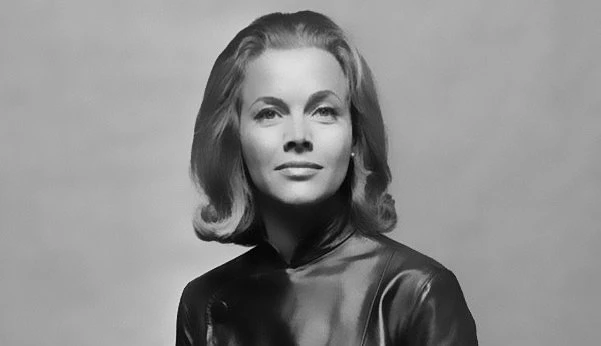
Steed's other partner in the second season was Cathy Gale, PhD, played by Honor Blackman, who was destined to become one of the most significant female characters in the history of television, and indeed Western culture in general.
The story is well attested that, when Hendry left, the producers did not want to spend time or money rewriting the dialogue that had already been prepared for him, so they just gave it unedited to Blackman. As a result you had Steed talking with a woman as he would talk with another man - having serious conversations about the matter in hand as equals, with the woman having her own ideas and defending them. This was quite revolutionary on television at the time.
It helped that Cathy Gale was a different kind of woman. A widow whose husband had been murdered by the Mau Mau in Kenya, she was a tough colonial who had seen it all, not the usual virgin in distress. Being proficient in judo, she was quite capable of looking after herself. In case that was not enough, her penchant for leather said it all.
It was quickly obvious that something special was happening, and in the third season she became Steed's sole partner and the Golden Age of The Avengers began.
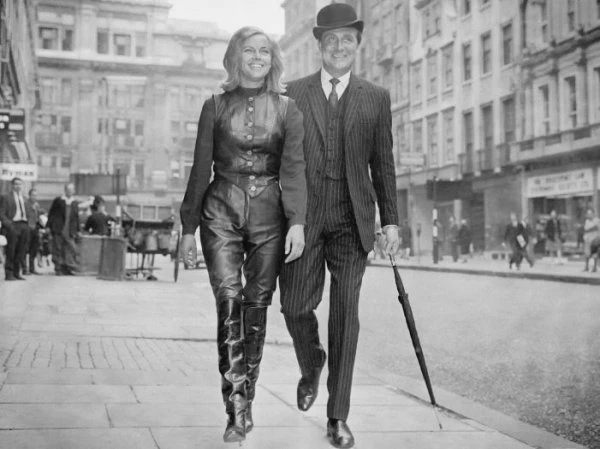
This is what most people remember when they think of The Avengers, a nicely ambiguous relationship between a supposed modern liberated woman and a supposed traditional English gentleman - for by this time Steed had also had an image change: the downbeat 1950s trenchcoats had been replaced by a bowler hat, an ever present umbrella, and, apparently, considerable private means.
Yet this standard reading of the pairing needs some qualification. For a start, Cathy was not a Swinging Sixties Girl but a practical, independent, emotionally mature woman of a type quite common in the last days of the British Empire, if not so common on television.
Moreover, a traditional English gentleman like Steed has never existed. The character was more of a pastiche of a type very common at the time, perhaps even a satire on the bowler hatted legions that could still be seen on the commuter trains into London. Yet none of them had their clothes designed by Pierre Cardin as Steed did. Steed was therefore arguably the more modern character of the two. If he was an aristocrat, he was the sort of aristocrat who was friendly with pop stars and had wild parties at his stately home. It is said that the producers disliked putting him in crowd scenes because they would only show up how eccentric he looked.
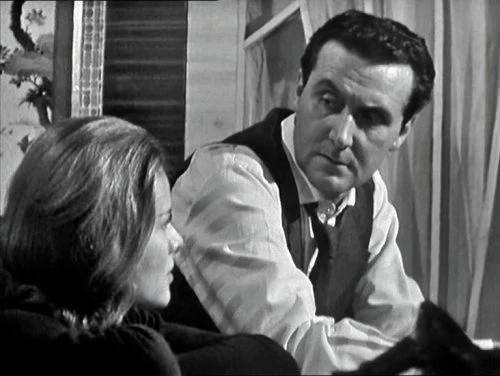
The key to the success of their relationship was maintaining a degree of sexual tension without any hint of consummation. By the third season, the show had worked through the dialogue written for Hendry, so the lines became more flirtatious - and humorous. Indeed, the whole tone of the piece changed. The grim idea of "avenging" was forgotten, and its place was Agatha Christie style amateur sleuthing. The plotlines got sillier.
The result was a definite hit, both with British audiences and in foreign markets. It even attracted serious money from the American Broadcasting Corporation (also ABC, rather confusingly) for the fourth season, which aired during prime time in the United States, a rare accomplishment for a non-American series. Production values improved as a result.
That vote of confidence came just in time because it was at this point that The Avengers became a victim of its own success. At the end of the third season, Blackman left, like Hendry before her, for the cinema - except in her case it was for the plum role of Pussy Galore in Goldfinger, which she got largely on the basis of her work as Cathy Gale. The Bond franchise had claimed its price for its contribution to the making of The Avengers, and not for the last time. Since many consider Goldfinger the best of all the Bond films, and all agree that Blackman was ideally cast, it was a good move for the actress, but it left The Avengers in a quandary.
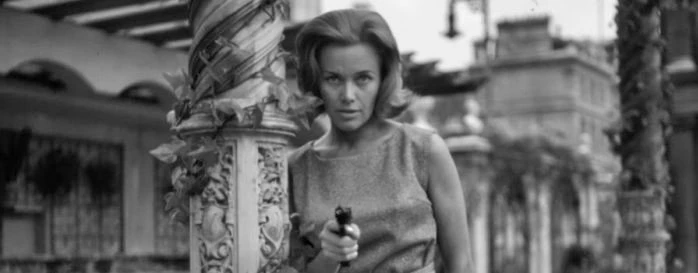
It seemed that the producers had no sooner found the winning formula - at last - than they had lost it. Given its considerable commercial success - again, at last - and the availability of that American money, there was no doubt that the show must go on. The question was "What show?"
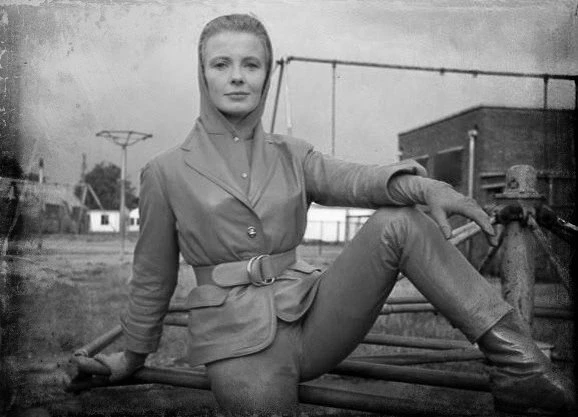
The Avengers made yet another false start as the filming of the fourth season began with the casting of the attractive Elizabeth Shepherd as Steed's new partner. There seemed to be no spark there, so the brave decision was made to recast and reshoot.
An even braver decision soon followed with the selection of the inexperienced Diana Rigg, largely on the basis of a screen test with Macnee, with whom she seems to have had an instant rapport.
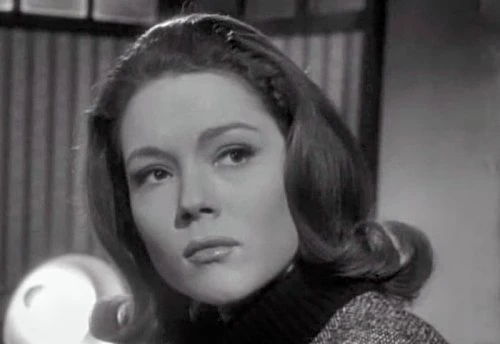
It was the birth of a legend. Whatever her personal feelings might have been, onscreen Rigg brought to the role of Emma Peel a precocious self confidence that energised the entire show. The name Emma Peel was a play on "m-appeal," i.e. "man appeal," the elusive quality people involved in developing the character said she had to have. Yes, sometimes the Sixties really did sound like an episode of Mad Men.
In practice, it was as if someone had made the sensible decision to list everything that had made Cathy Gale so interesting and then said, "Take it up a notch."
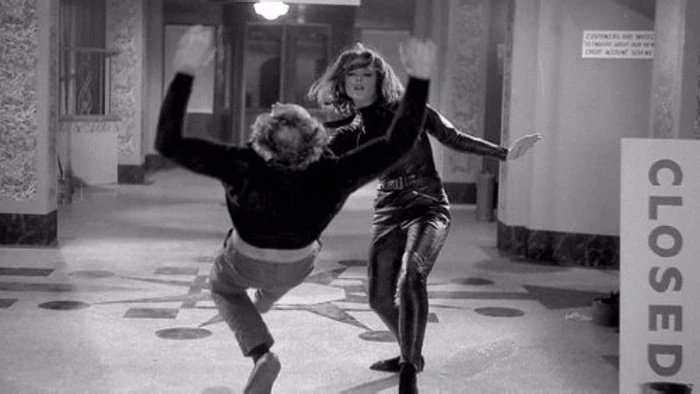
So Cathy's thing for leather became Emma's infamous catsuit. Where Cathy was a fighter at need, Emma was a positive action woman. Cathy was skilled at judo, but Emma was a complete martial artist - Rigg is credited with being the first person to use kung fu on Western mainstream television. Unlike Cathy, Emma really was the epitome of the liberated young woman of the Sixties, at least in style and manner. In one respect, however, she was a traditionalist and that really was the making of the show:
Emma Peel was married. More than that, she really loved her husband, who was conveniently lost in the Amazon. This dialled the romantic tension with Steed up to 11. An obviously passionate woman in her prime, she was left in a state of sexual limbo, attracted to a man who was clearly attracted to her, but still feeling bound by her vows, because to do otherwise would be effectively killing her husband in her mind.
The much married Macnee was of the opinion that this did not matter and that they would have had an affair anyway, but Rigg is surely right that they did not. For one thing, sexual frustration is all over the fourth and fifth seasons of The Avengers, from the Freudian use of the Champagne bottle in the famous titles sequence to Steed's rather stalker-like behaviour in the way he summons her to another adventure.
More importantly, it is the notion of unconsummated love that gives the ending of their partnership its poignancy. Spoiler alert: Emma's husband turns up in the end. It so happens that he looks rather like Steed - which is not surprising since he was played by Macnee's stunt double - and, like Steed, drives a Bentley. We are left wondering if her love for Steed was ultimately a manifestation of her love for her husband - or vice versa.
There was a lot of fun to be had before then. The series had already left its realist roots far behind. Now it became positively surreal. Elements of science fiction were increasingly frequent in the storylines.
The list of guest stars was already a 'Who's Who' of the British acting profession in the 1960s, with several well known faces, like Geoffrey Palmer, Roy Kinnear, Ronnie Barker, Peter Bowles, and Philip Madoc, appearing in different roles in different episodes. The Avengers was a place to be seen.
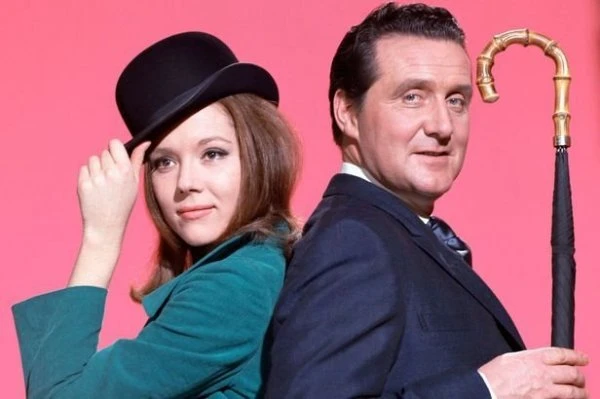
It was with its fifth season that the show reached its zenith. In America The Avengers was competing with American shows that were being made in colour, and colour television ownership there had reached a point where that mattered. So ABC - the American one - insisted that some of their dollars be used to make the show in colour.
It was the final ingredient necessary to make the formula complete. In the early days of colour television, those investing in it in any way - broadcasters, producers, or viewers - wanted their money's worth. That is why in the Sixties, colour really was colour.
It was expected to be bright and distinct. Added to that was the general fashion for such vibrant colours that came to define the decade. The extent to which this fashion was itself a cause or an effect of the rise of colour television may be a matter for debate. The point is that it all came together at the same moment, and at that moment The Avengers was the perfect show for it.
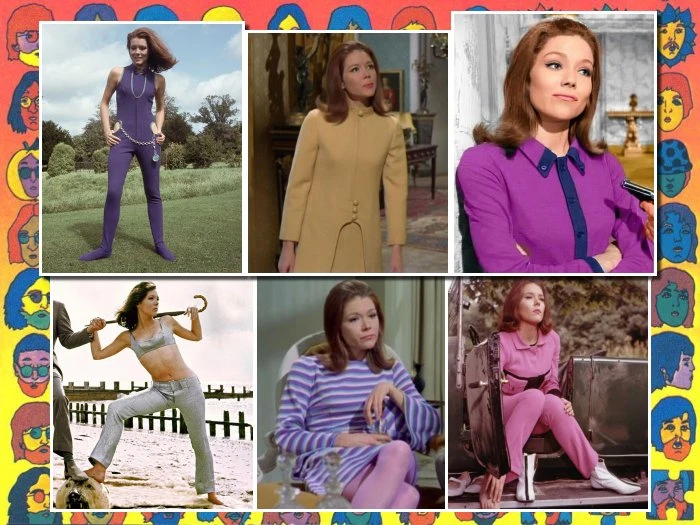
Since Cathy Gale, the producers had made a point of putting their leading ladies in the latest cutting-edge fashions, which were in turn adopted by viewers. The show was therefore already a trend setter before it was made in colour, but it was the colour episodes that made it the definitive showcase for Swinging London. As well as choosing the most colourful clothes they could find, the producers also made sure the sets and locations were selected with a view to making the most of the new technology.
When older people think of The Avengers it is those colourful images from the fifth season that tend to come to mind. In the case of most British viewers, these are false memories, for, despite being shot in colour for the American market, it was still broadcast in black and white in the UK.
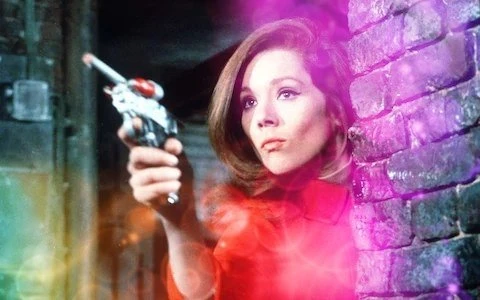
Either way, it had become - and remains to this day - a major part of the Sixties cultural landscape. Songs were written about Emma Peel. She was the mid Sixties personified. Steed too became a definitive symbol of post-Imperial Britain, slightly stuffy but not taking itself too seriously. Macnee had gradually developed the charm of the character from its rather rough beginning until it reached the height of amiability. The chemistry between the two was undeniable. In real life, the two were good friends and it comes across onscreen.
It was of its moment, and that moment was never going to last. It was at the end of the fifth season, the season that got everything right, that Rigg followed Blackman and left to do a Bond film. In Rigg's case that film was the excellent On Her Majesty's Secret Service and many believe she was the best Bond girl of them all, a woman who could actually make Bond, briefly, cease to be Bond. Her time on The Avengers had given her the perfect apprenticeship to achieve that.
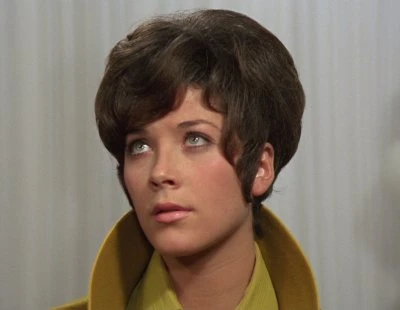
Yet her departure was the beginning of the end of The Avengers. Her replacement, Linda Thorson, as Tara King, did a fine job by any standards. If she had starred in a completely new show, she might have become a legend in her own right, but from the start she was overshadowed by no less than two previous legends, both revolutionary figures in television history. No one could have overcome that situation.
It was made worse by some bad conceptual decisions. Since Emma had been younger than Cathy, and that had worked, the producers reasoned that Tara should be younger still, about twenty. They might have got away with that had they not tried to repeat something else that had worked when Emma had taken over from Cathy: the flirting became more overtly sexual. This was completely misjudged. Since Steed, like Macnee, had served in the Second World War, he was easily old enough to be Tara's father. The romantic element was therefore at best out of place and at worst positively unpleasant. It did not help that Macnee was beginning to look a bit tired, even if his personal charm was undiminished. Putting him next to a much younger partner highlighted that.
The scripts were also getting a bit tired. They had long been satirising other shows, including shows it had influenced. It was therefore beginning to be a satire of itself. While much of this was very witty, it could only go on for so long.
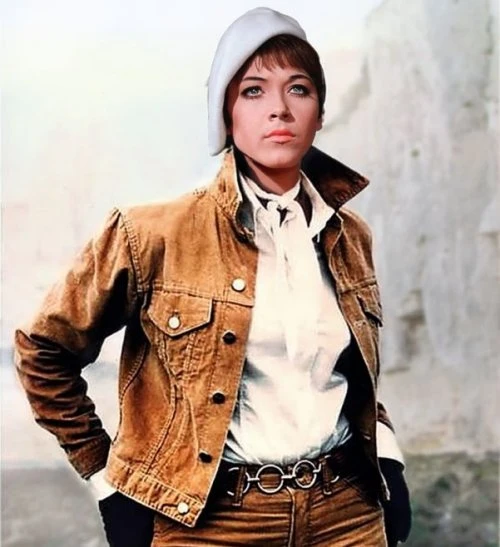
Nevertheless, the sixth season was a commercial success in Britain and most other markets. Much of the credit for this belongs to Thorson, who was in fact a more convincing representation of Sixties Girl than either of her esteemed predecessors.
The exception was the only market that really mattered, America. ABC - the American one - scheduled it against the popular Rowan & Martin's Laugh-In, which attracted many of the same type of viewers. The result was a predictable ratings defeat and cancellation by ABC.
By this stage, the American money, and the quality demanded in return, had made The Avengers a very expensive show to produce. It might have been possible to reduce the production budget and go back to producing a show for British and European markets similar to what it had been before, but this would have been at the expense of the glamour and style which were now synonymous with The Avengers. It was therefore the right decision to quit while they were ahead.
Times were, in any case, changing. The bright, colourful optimism of the mid Sixties, of which The Avengers was symbolic, was starting to become a little overcast. This was reflected in another, very different spy drama now also being made for ITV, the dark but thought provoking Callan. The party was winding down and the hangover was not long in coming.
In any case, The Avengers had already established its legacy in a host of other "spy capers" featuring highly accomplished and affluent "superagents" in fantasy situations. Its influence on The Man From U.N.C.L.E., The Baron, The Prisoner, The Champions, and, later The Persuaders and The Protectors, among many others, is fairly obvious. Apart from anything else, and in addition to having the word "The" at the start of the title, many of these projects employed Brian Clemens who had been the most influential writer on The Avengers.
In addition, it is interesting to note how many ideas from The Avengers turned up in later Bond films - as did Macnee himself on one occasion.
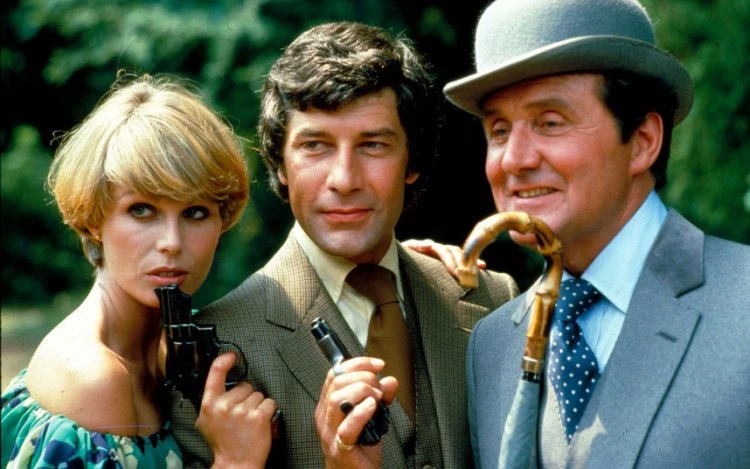
Macnee also joined in Clemens' revival of the show as The New Avengers in 1976, with Steed now acting as mentor to two younger agents, played by Joanna Lumley and Gareth Hunt. Although some die-hard fans of the original can get a bit sniffy about The New Avengers, it was a well made and likeable show that had quite a bit of impact at the time. Its problem is that it is inevitably compared with the original, the cultural impact of which was unique.
In any case, The New Avengers was basically a jolly Sixties style caper show in the wrong decade: it seemed that everyone in the Seventies was depressed and anyone trying to cheer them up was striking a false note.
For the secret of the success of The Avengers is that it was a product of its time and place. Older viewers watching it now may find it is not quite as good as they remembered. Indeed, whisper it but the better episodes of The New Avengers may be smoother and better produced than those even of the revered season five of The Avengers.
No matter. The point is that when it came out, The Avengers seemed the epitome of glamour and style, and it had something to say to an aspirational and optimistic generation. Today, it is best rewatched as an evocation of that time and place, or rather how that time and place wanted to see itself and be seen. As such, it has no superior.
Besides, if nothing else, it was - and remains - great fun.
Published on November 25th, 2022. Written by John Winterson Richards for Television Heaven.


